Inefficiency + Joy with David Epstein
About the Episode
It’s a rare gift to feel really seen, isn’t it? When you’ve spent your life feeling like the world isn’t quite made for you—maybe you hate being asked to pick just one job and stick with it forever, and your family thinks of you as a lost cause, and your resume looks like a leaf floating in the wind, and your friends question whether you’ll ever “pull yourself together”—it can feel like a miracle when someone shows up and says, “You know what? Your path is not only normal, but deeply needed.”
That might explain the emotional response David Epstein continues to receive for his second book, Range. Like a love letter to generalists, backed by mounds of scientific data, Range makes the case that delayed selection is actually better for development. When you “sample” many different things, taking your time to find what really suits you, you might spend years looking “lazy” or “directionless” from the outside, but there’s a good chance you’ll find greater satisfaction when you finally find “your thing.” In fact, in combining all of your varied experiences, you might also fill a unique niche in the world—one no one else has ever considered.
And while the world might see this process as very “inefficient”—a hated behavior in an industrialized world—David and I talk about how inefficiency is actually quite connected to the concept of “match fit,” which is really just another way to say “joy.”
Episode Details
About David (he/him)
David Epstein is the author of the New York Times bestsellers Range and The Sports Gene. He was previously an investigative reporter at ProPublica, where his work spanned from drug cartels to poor practices in scientific research. Prior to that, he was a senior writer at Sports Illustrated. He has master's degrees in environmental science and journalism and has lived aboard a ship in the Pacific Ocean, and in a tent in the Arctic. His TED Talks have been viewed more than 10 million times, and he’s the former host of Slate’s popular “How To!” podcast.
What We Discuss
Vincent van Gogh, who didn’t come into painting until very late in his life, after years of trying many, many different things and often seeming a “failure.”
The first time David realized that normalizing life as a generalist might be incredibly cathartic, and why he thinks “Range” continues to elicit such an emotional response.
David’s own path as a generalist and how his “average” skills in one domain, when applied to something seemingly unrelated, suddenly became very unique.
How switching so many jobs in your life can be seen as “inefficient,” but often leads you to a better “match fit.”
Why we’ve traditionally cared so much about efficiency, but what society actually calls for now.
How things like school debt can keep us in jobs that aren’t a good fit for us, and what the “sunk-cost fallacy” has to do with it.
How humans are actually more suited to late-blooming than any other organism.
How David practices inefficiency to keep himself joyful and curious.
The people currently inspiring David when it comes to “connecting the seemingly un-connectable.”
Sources Mentioned
Here’s a link to the archive of van Gogh’s letters, and a link to the specific letter I mention at the beginning of the episode, written from van Gogh to his brother, Theo. Note that the letter is on the left of the page, and footnotes are on the right.
Find out more about the Pat Tillman Foundation.
Here’s the first public dialogue between David and Malcolm Gladwell, and here’s the second. Here, too, is a link directly to Malcolm Gladwell’s work.
Maria Konnikova is who David mentions is one of his favorite writers, who’s also a psychologist. The book of hers about con men is The Confidence Game.
Here’s more on the Harvard Dark Horse Project.
Frances Hesselbein is the inspiration of David’s that we mention—but rather than me point you to a particular link, because there are many, you should just Google her :)
Here’s a piece about “kind” vs. “wicked” learning environments, which David alludes to, from the work of scientist Robin Hogarth.
Science fiction author Robert A. Heinlein is the one who said, “Specialization is for insects.”
"Is the Scientific Paper a Fraud?" is the paper by Nobel laureate biologist Sir Peter Medawar, which contends that there is no such thing as an unprejudiced observation.
Ian Leslie’s book on curiosity is called Curious: The Desire to Know and Why Your Future Depends on It.
Here are the books of Jorge Luis Borjes, the amazing short story writer that David has been obsessing over.
“The Garden of Forking Paths,” the title of which is based on one of Borjes’ short stories, and which was written by Andrew Gelman and Erik Loken, can be found here.
Or, Listen & Subscribe On
Spotify
Stitcher
Or wherever you get your podcasts.
Find David Online
Website
Twitter
TED Talk #1
TED Talk #2
Slate’s “How To” Podcast
Get More This Plus That
Sign Up for the Newsletter
Follow on Twitter
Follow on Instagram
Credits
Audio engineering by the team at Upfire Digital.
All of my music is provided by the in-house musicians at Slip.stream.
The photo of David used in all episode artwork was taken by Deb Lindsey.
Episode Transcript
Coming soon, hopefully! Would you be willing to help? Email me at brandi@thisplusthat.com!
